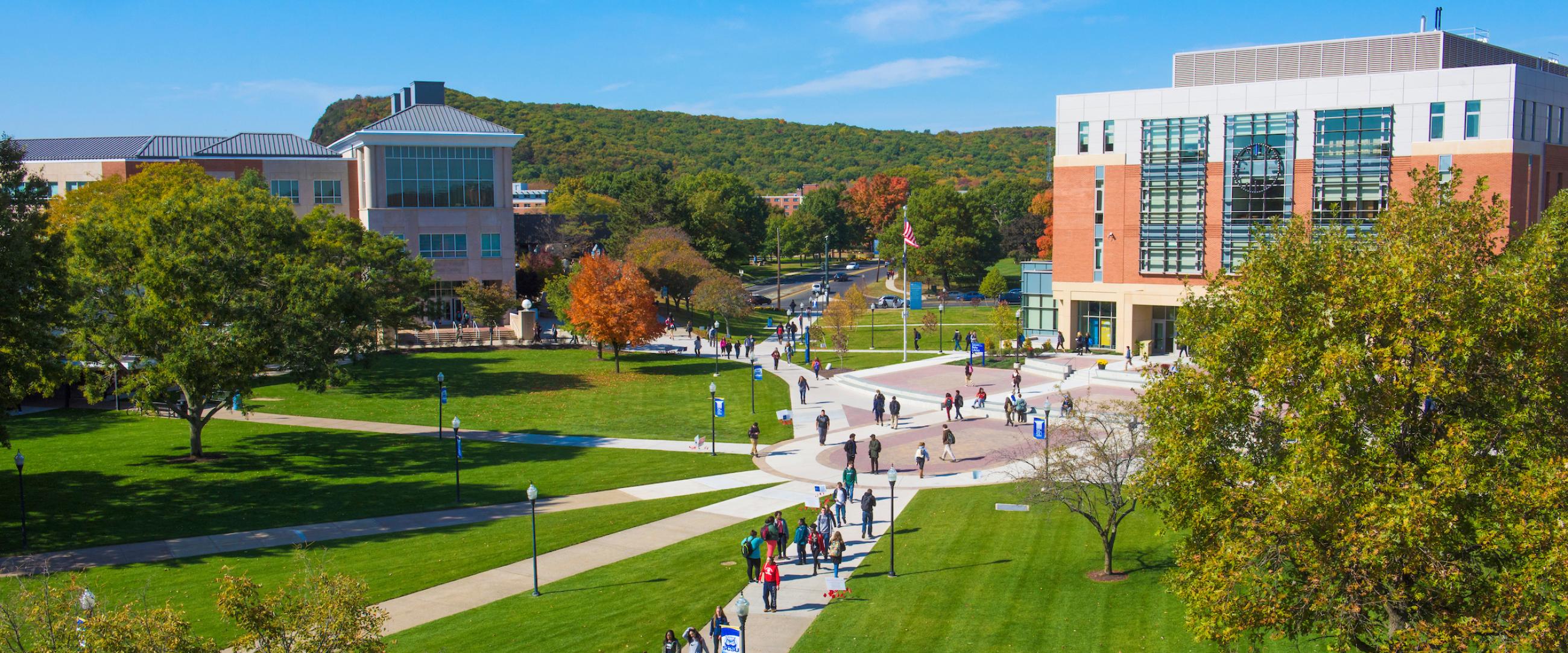In the undergraduate program, students study an array of public health topics with an emphasis on health promotion, environmental health, and epidemiology – the science of public health. The program is intensively hands-on, with many class activities centering around community service and a culminating internship where students get real-world experience working with a public health or community agency. Students gain and apply public health concepts and competencies in a variety of ways. They have the opportunity to learn and apply skills within areas such as health promotion, health equity, social determinants of health, and environmental health.
These opportunities include:
- Internships: Students are required to complete an internship, which is done directly by obtaining knowledge, skills, and competency acquisition in a variety of professional, industry, and nonprofit companies and organizations.
- Student Research: SCSU public health students have the opportunity to work independently on their own research projects, with the option to conduct an honors thesis or compete for an undergraduate student research award on campus.
- Faculty Research: Public health faculty are deeply engaged with
community-based research and students have the opportunity to work collaboratively with current faculty within their areas of expertise. - Independent Study: Students will develop new knowledge and scholarly inquiries within a topical area of their choice under the guidance and supervision of faculty members.
Careers
The field of public health is continuously evolving in response to the needs of communities and populations around the world. This broad discipline includes science, community engagement, and policy aimed at protecting and improving the health and well-being of communities. Public health professionals work to prevent and solve public health challenges through education, policy development, advocacy, service, and research. By improving the conditions and behaviors that affect health, we can help all people attain it.
Students graduate knowing how to promote, maintain, and enhance the public's health. In today's complex world, the field of public health is becoming an increasingly vital part of our daily lives. It's a field in which professionals can make a difference, whether they're researching and tracking the spread of disease, running awareness campaigns in community agencies, advising corporations on health programs, or maintaining a safe environment.
Southern’s public health graduates work at local health departments, community-based agencies, hospitals, insurance and pharmaceutical companies, and nonprofit agencies like the American Red Cross. A few examples of the many other options include working in a community health center to eliminate health inequities; organizing community responses to health problems, such as lead poisoning; addressing the AIDS epidemic; promoting a healthy environment; designing public health policies and interventions; and leading international health relief efforts in less developed parts of the world.
Typical Job Titles
- Public Health Analyst
- Community Health Worker
- Health Educator
- Epidemiologist
- Public Health Advisor
- Healthcare Consultant
- Health Policy Analyst
- Public Health Researcher
School / College
College of Health & Human Services
Department
Public Health
Contact
Dr. Michele Griswold

